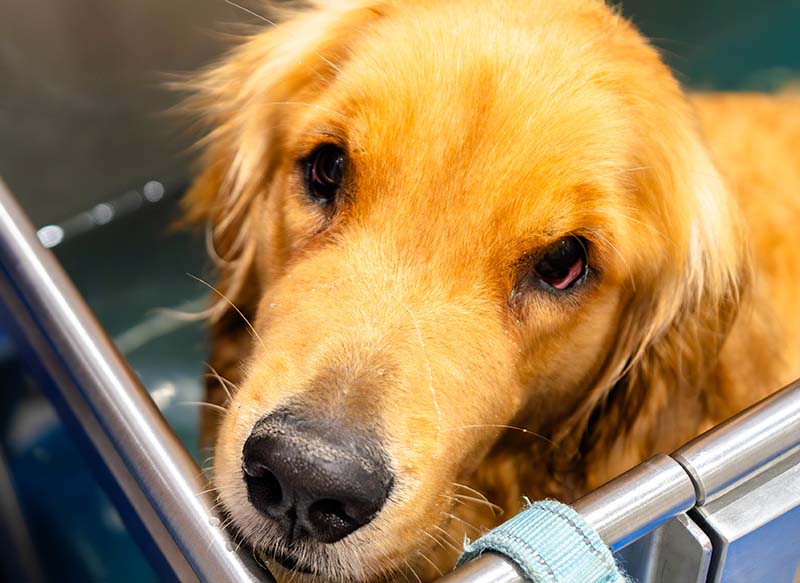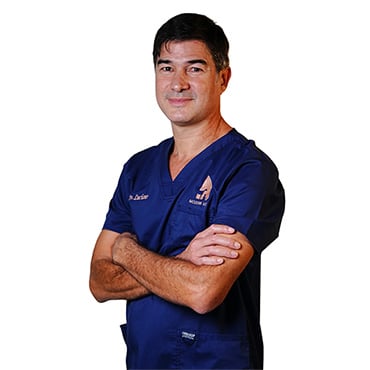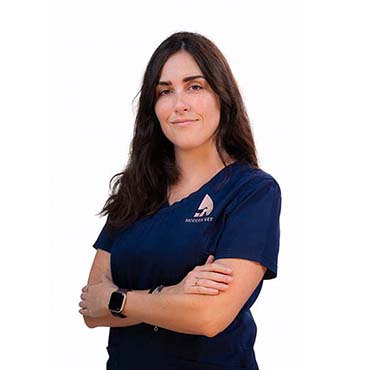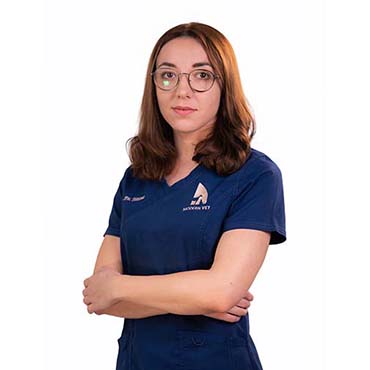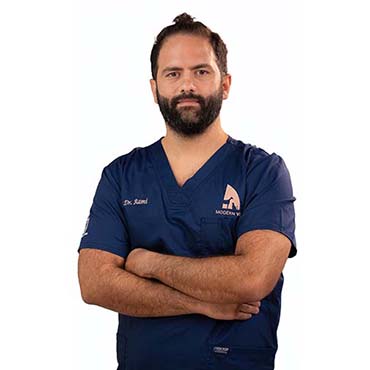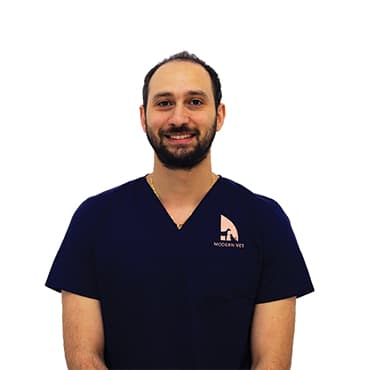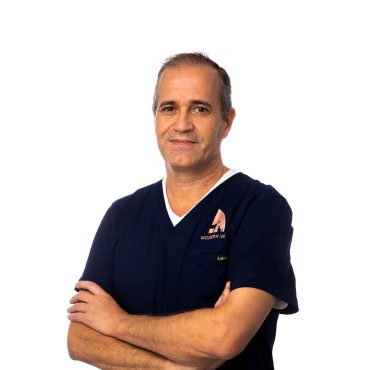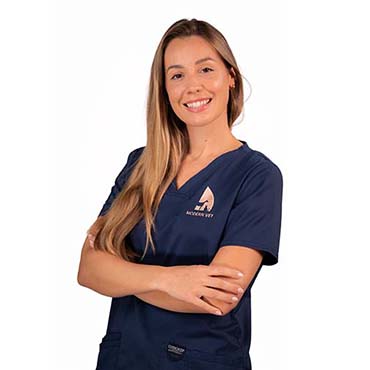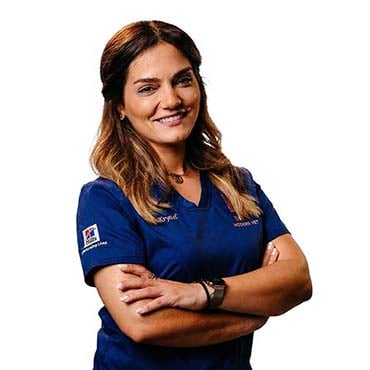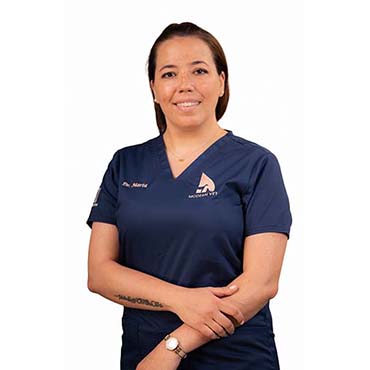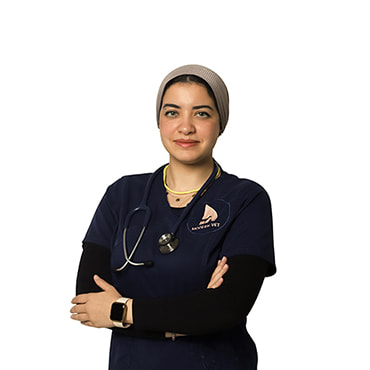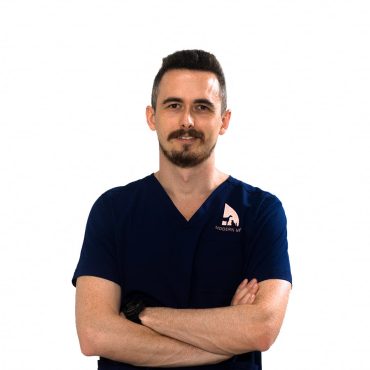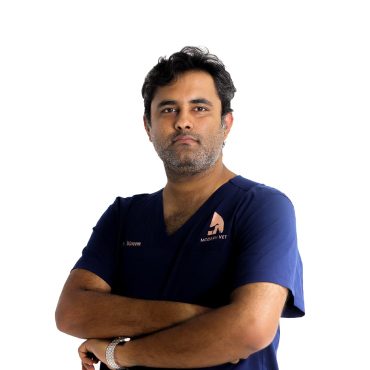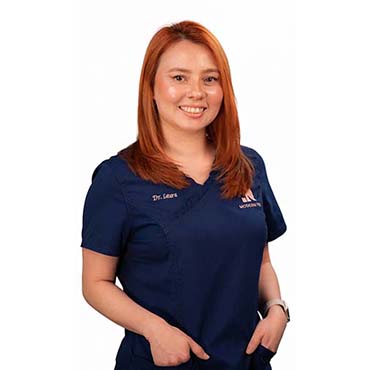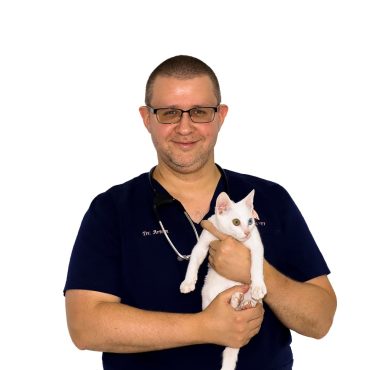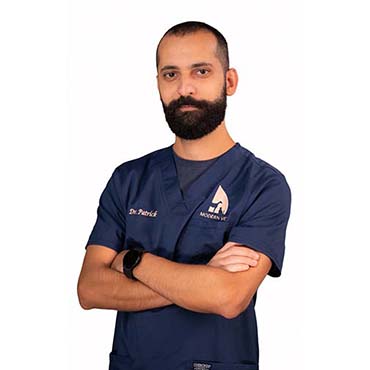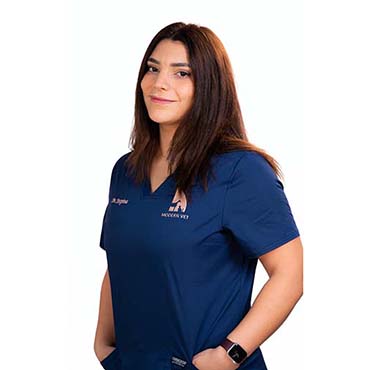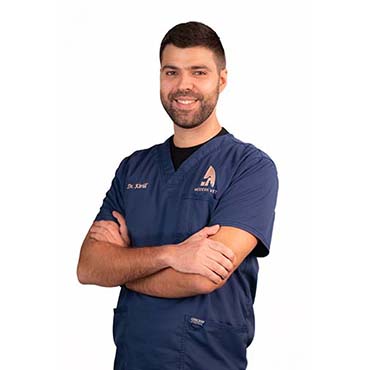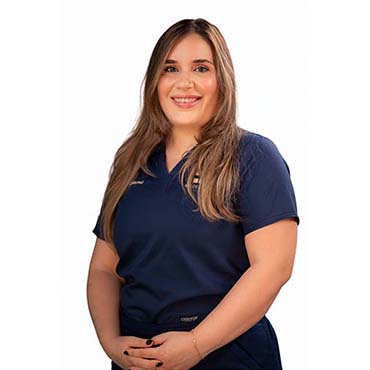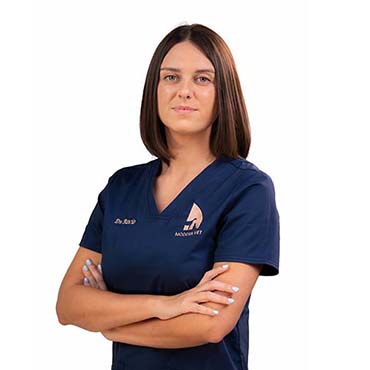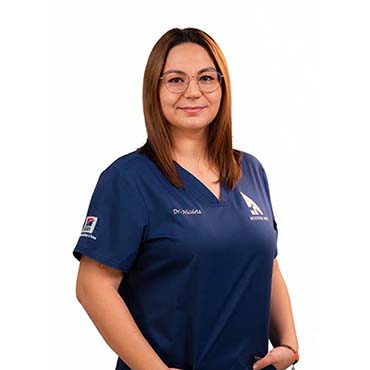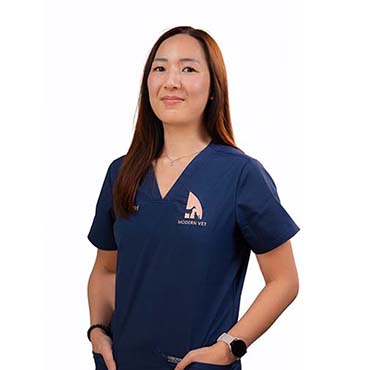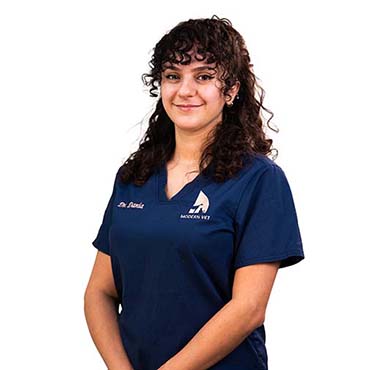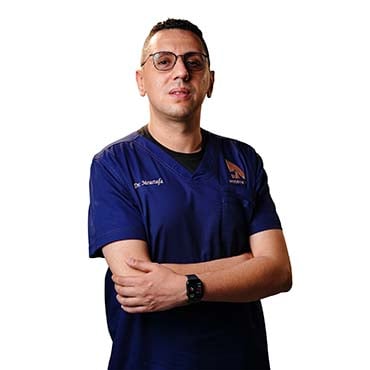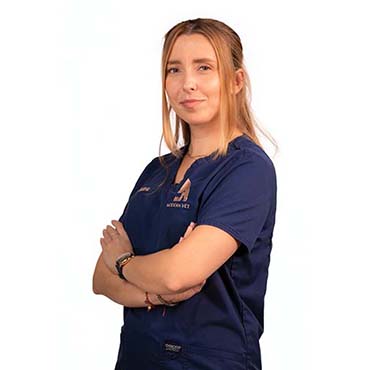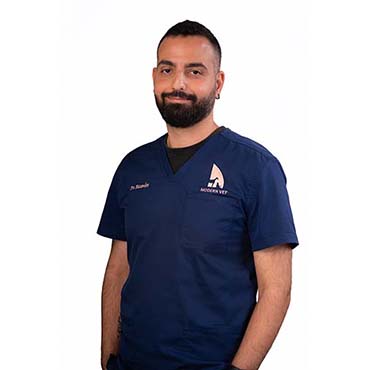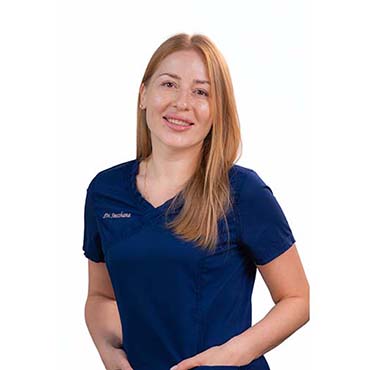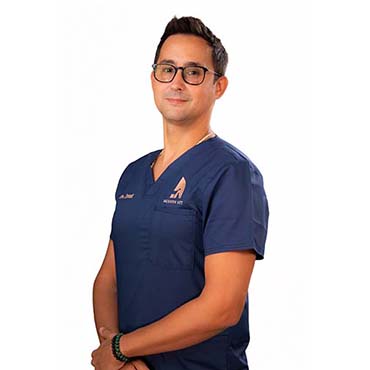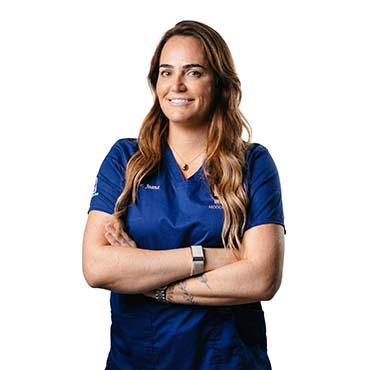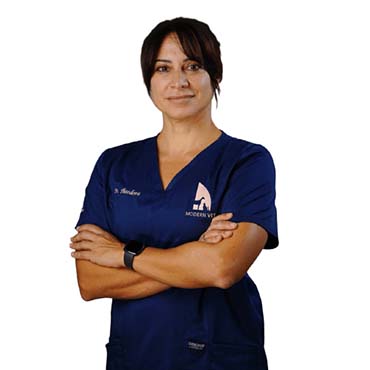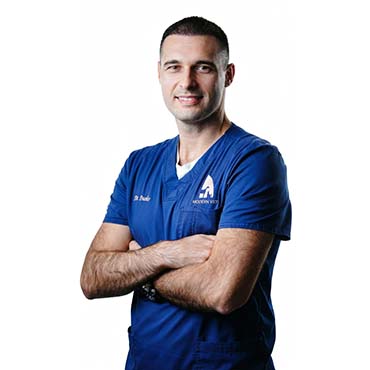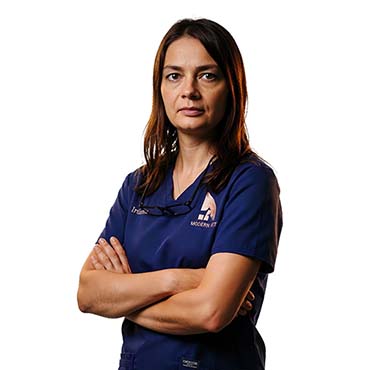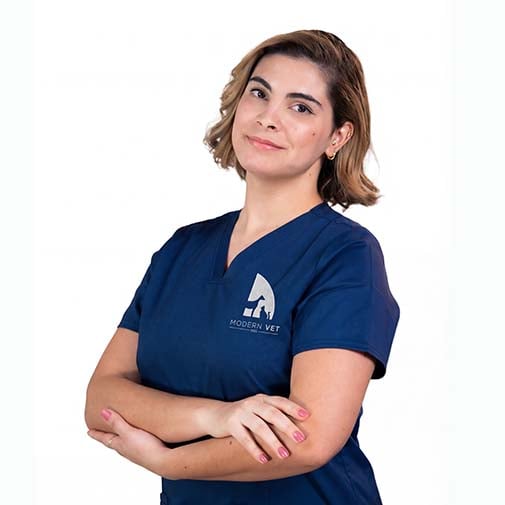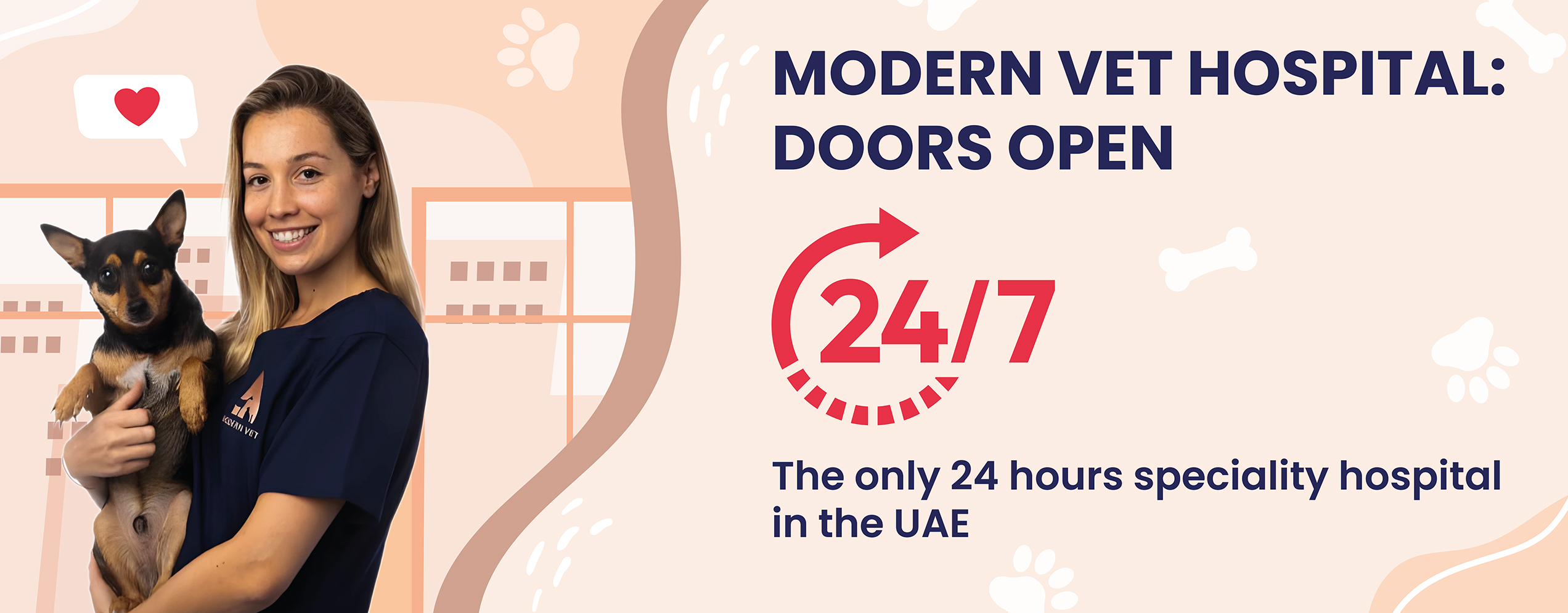At Modern Veterinary Hospital, we know that being able to move comfortably is critical to your furry friends’ overall happiness and well-being. Musculoskeletal health is vital for everyone, from rambunctious pups to elderly cats and working dogs—Good dog! Now, the approach to soft tissue & orthopedics is all about diagnosing, treating & rehabilitating various orthopedic and soft tissue disorders, so your pet can receive the best treatment at multiple stages of life.
Key Signs Your Pet May Need Orthopedic Or Soft Tissue Care:
Limping Or Lameness In One Or More Limbs
Noticeable Muscle Loss In Legs Or Hips
Difficulty Rising, Sitting, Or Lying Down
Sudden Or Chronic Injuries From Trauma
Reluctance To Jump, Run, Or Climb Stairs
Slow-Healing Wounds Or Surgical Complications
Visible Pain Or Sensitivity When Moving
Decreased Playfulness Or Activity Levels
Joint Swelling Or Decreased Range Of Motion
Sudden Behavior Changes Linked To Pain
Clicking Or Popping Sounds In Joints
Difficulty Walking After Accidents Or Falls

What Is Veterinary Orthopedics?
Veterinary orthopedics is a field of veterinary medicine that specializes in the diagnosis, treatment, corrective surgery, and prevention of injuries, bone tumors, and congenital disorders affecting animals’ bones, joints, muscles, ligaments, and tendons. These components comprise the musculoskeletal system, the body system responsible for movement, support, and overall mobility. Orthopedic issues can be present from birth (congenital), genetically inherited, or acquired later in life as the result of trauma, infection, immune-mediated disease, or degenerative changes.
On the other hand, soft tissue surgery deals with organs, skin, muscle, or connective tissue that are not part of the skeletal system. These procedures would include the removal of tumors, wound reconstruction, and the repair of hernias or ruptured organs.
Comprehensive Orthopedic Services for Dogs and Cats
Modern Veterinary Hospital offers a comprehensive range of orthopedic and soft tissue services, making it convenient to have everything from screening and diagnosis to advanced surgical intervention and post-operative rehabilitation. Whether your pet is recovering from trauma, managing a chronic condition, or requires assistance due to aging, we aim to restore function, alleviate pain, and enhance their quality of life.
Common Orthopedic and Soft Tissue Conditions We Treat
Our team of board-certified veterinary surgeons and orthopedic specialists is skilled at handling a variety of conditions, including:
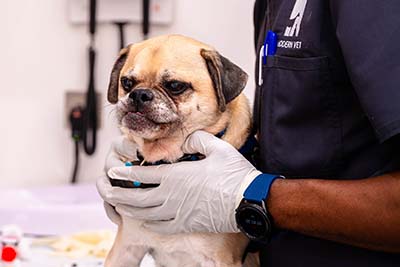
● Hereditary Joint Diseases: Hip and elbow dysplasia, which cause discomfort, lameness, and arthritis if left untreated.
● Patella Luxation: The kneecap can slip out of place; this is common in small breeds but can happen in larger dogs and even in cats.
● Fractures: Broken bones result from trauma, falls, or accidents. We care for all types, from simple fissures to complex, multi-fragmented fractures.
● Cruciate Ligament Tears: This is one of the most frequently diagnosed orthopedic injuries in dogs (like humans, many dogs experience ACL tears), leading to knee instability and pain.
● Arthritis and Degenerative Joint Disease: Both chronic conditions impact mobility and comfort, especially in older pets.
● Soft Tissue Injuries can manifest as muscle tears, ruptured tendons, or ligament injuries.
● Tumors and Masses: Malignant and benign growths involving soft tissue or bone.
● Wound Management: Wound management for complex wounds, lacerations, or surgical site complications needing specialized care.
Why Us: Most Experienced and Compassionate
Our veterinary orthopedic team comprises board-certified surgeons with over 125 years of combined experience. They collaborate with anesthesiologists, pain medicine specialists, and rehabilitation therapists to provide integrated multidisciplinary care. Every team member is dedicated to continuing education and learning, and your pet will benefit from the most recent technology in veterinary orthopedics and soft tissue surgery.
Precision Diagnosis and Treatment with Advanced Technology
The orthopedic team at Modern Veterinary Hospital specializes in diagnosing and treating many musculoskeletal conditions in dogs and cats. Common orthopedic conditions we treat include:
● Hereditary Joint Diseases: These conditions cause chronic pain and can lead to severe mobility issues if not treated early (e.g., hip and elbow dysplasia).
● Patella luxation: The kneecap slips out of place, causing intermittent lameness and pain, which is common in small breeds.
● Fractures: Whether you suffer a simple break or one with many pieces, our team can assist with any bone injury cases resulting from trauma or accidents.
● Cruciate ligament tears: These are among the most common causes of rear limb lameness in dogs, and they are analogous to ACL injuries in people; they typically require surgical repair by a specialist.
● Arthritis: Degenerative joint disease in pets of all ages, but especially seniors, which produces stiffness, pain, and decreased activity
These are just a selection of the conditions our experienced board-certified veterinary surgeons routinely treat. Our orthopedic specialists have over 125 years of combined experience and collaborate with our compassionate-driven anesthesiologists to ensure that each patient receives thorough care during their procedures.
Services Offered At A Pet Orthopedic Clinic Include:
Full Orthopedic & Joint Examinations
Soft Tissue Surgeries & Tumor Removals
Advanced Imaging: X-Rays, CT, MRI
Pain Management & Rehabilitation Plans
Treatment For Hip & Elbow Dysplasia
Hydrotherapy & Physiotherapy Options
Cruciate Ligament (ACL) Repair Surgeries
Arthritis & Degenerative Joint Disease Care
Fracture Repairs & Bone Stabilization
Wound Management & Reconstruction
Minimally Invasive Orthopedic Surgery
24/7 Orthopedic Emergency Services

Patient Journey: From Diagnosis to Healing
Initial Consultation and Assessment
● Orthopedic examination: This is how the journey of your pet begins. Our veterinarians will check your pet’s medical history, observe their gait and movement, and physically assess affected areas. A form of advanced imaging may also be recommended to confirm the diagnosis and determine the best possible treatment approach for you.
Personalized Treatment Planning
Each pet is unique, and so are its orthopedic requirements. Our team will create a customized treatment plan that may include:
● Medical Management: Pain management, anti-inflammatories, joint supplements, or physical therapy for mild cases.
● Surgery: If fractures, torn ligaments, or advanced joint disease are present, surgery may be desired.
● Rehabilitation: Involves post-operative physical therapy, hydrotherapy, and laser therapy to help accelerate recovery and restore function.
Safe and Advanced Anesthesia
Most orthopedic and soft tissue surgeries will require general anesthesia. Before the procedure, our anesthesiologists will perform a comprehensive physical examination on your pet and a blood panel to ensure your pet is a suitable candidate for anesthesia.
Our monitoring technology is the latest, and we utilize heat support on the table to keep you safe and comfortable during the entire process. We place IV catheters for fluids and provide tailored anesthetic and pain management protocols for each patient.
Surgical Expertise and Pain Management
Our surgeons utilize both traditional and minimally invasive options. Protocol: Pain management has always been paramount, encompassing preoperative, intraoperative, and postoperative topics. Surgery patients are dosed explicitly with pain medication, and the recovery team stays nearby to keep patients at ease.
Post-Operative Care and Rehabilitation
After surgery, your pet will be settled into a warm, quiet recovery area, where they will be closely monitored and cared for. While moving you (or your child) into the home, our team will explain care, etc., including medication schedules, activity restrictions, and follow-up appointments. This rehabilitation can include physiotherapy, massage, hydrotherapy, or laser therapy to stimulate healing and promote movement recovery.
Pain Management: A Central Focus
Pain control is critical to healing and quality of life. Our pain management protocols are evidence-based, individualized, and discerning—yet often include a combination of medications, nerve blocks, and non-pharmaceutical therapies. We do not condone the needless suffering of any pet, and our team strives to minimize pain at any stage.
Client Communication and Support
Your pet is important to you, so we understand how much surgery can scare pet owners. We guide you through the process, explaining everything from the diagnosis and treatment options to answering questions and providing updates throughout your pet’s stay with us. Our philosophy is straightforward: we will communicate openly and kindly with you, enabling you to make informed decisions about your pet’s care.
Why Choose Modern Veterinary Hospital for Soft Tissue & Orthopedic Care?
● Experience: Decades of combined experience among board-certified surgeons and a multidisciplinary team
● Technology: Diagnostic and surgical instruments that are highly accurate and effective.
● Comprehensive Care: We offer a full continuum of services from diagnosis to rehabilitation.
● Compassion: We treat every pet as our own, focusing on comfort and quality of life.
● Client Partnership: Transparency, knowledge sharing, and assistance at each phase.
Don’t delay if your dog is limping, suffering, or has an orthopedic or soft tissue problem. Contact Modern Veterinary Hospital today for a consultation, and give your companion the best chance of an active and healthy life.
FREQUENTLY ASKED QUESTIONS
Learn more about "SOFT TISSUE & ORTHOPEDICS"
